Oculus Go vs Oculus Rift: should you switch to the standalone VR headset?
Affordable and portable vs VR powerhouse
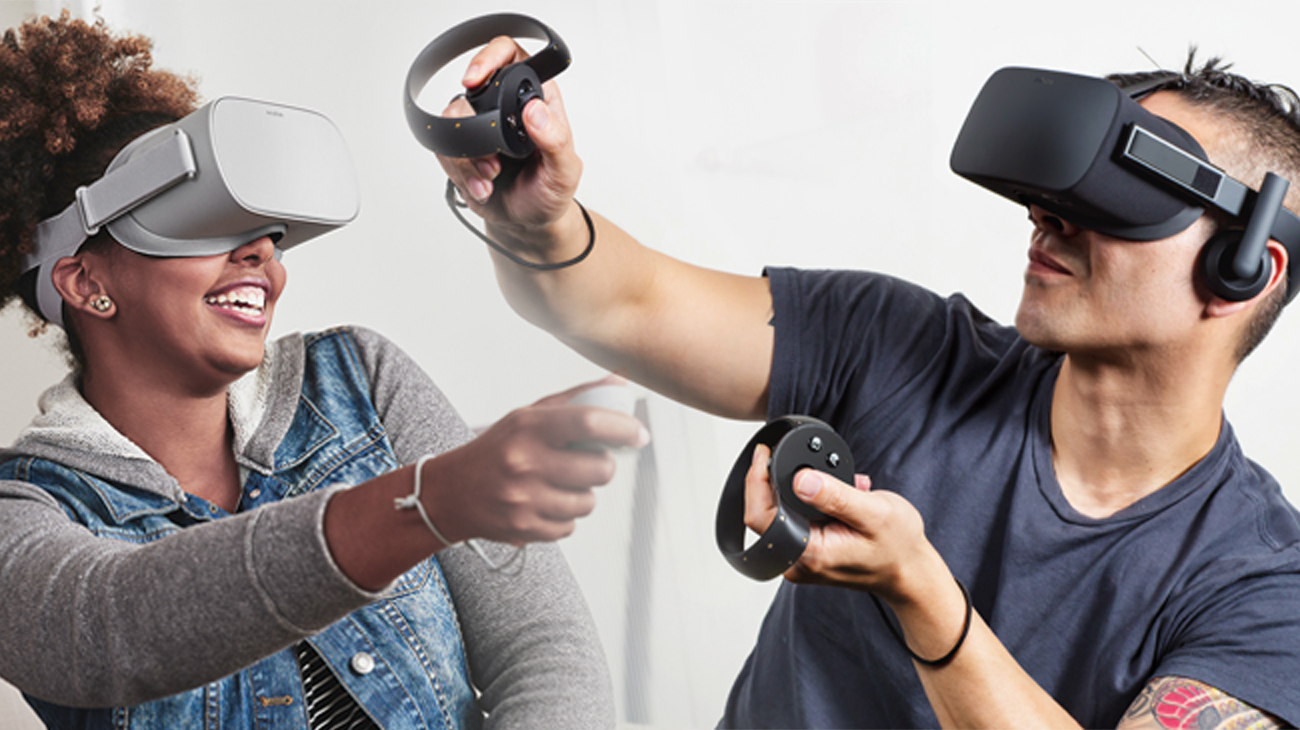
Oculus has been a key player in the drive to bring virtual reality (VR) into the mainstream.
It helped with the development of the Samsung Gear VR headsets, and the Oculus Rift offers one of the most astounding VR experiences available.
Now, the standalone Oculus Go is here, and aims to make VR even more accessible with a low price and few compromises in quality.
Though the Oculus Go is much newer than the Rift, the latter still remains Oculus' premium headset.
Each headset manages to best the other in a few ways, so let's take a close look at what the Oculus Go and Oculus Rift each offer, and decide which headset is right for different types of VR users.
Price
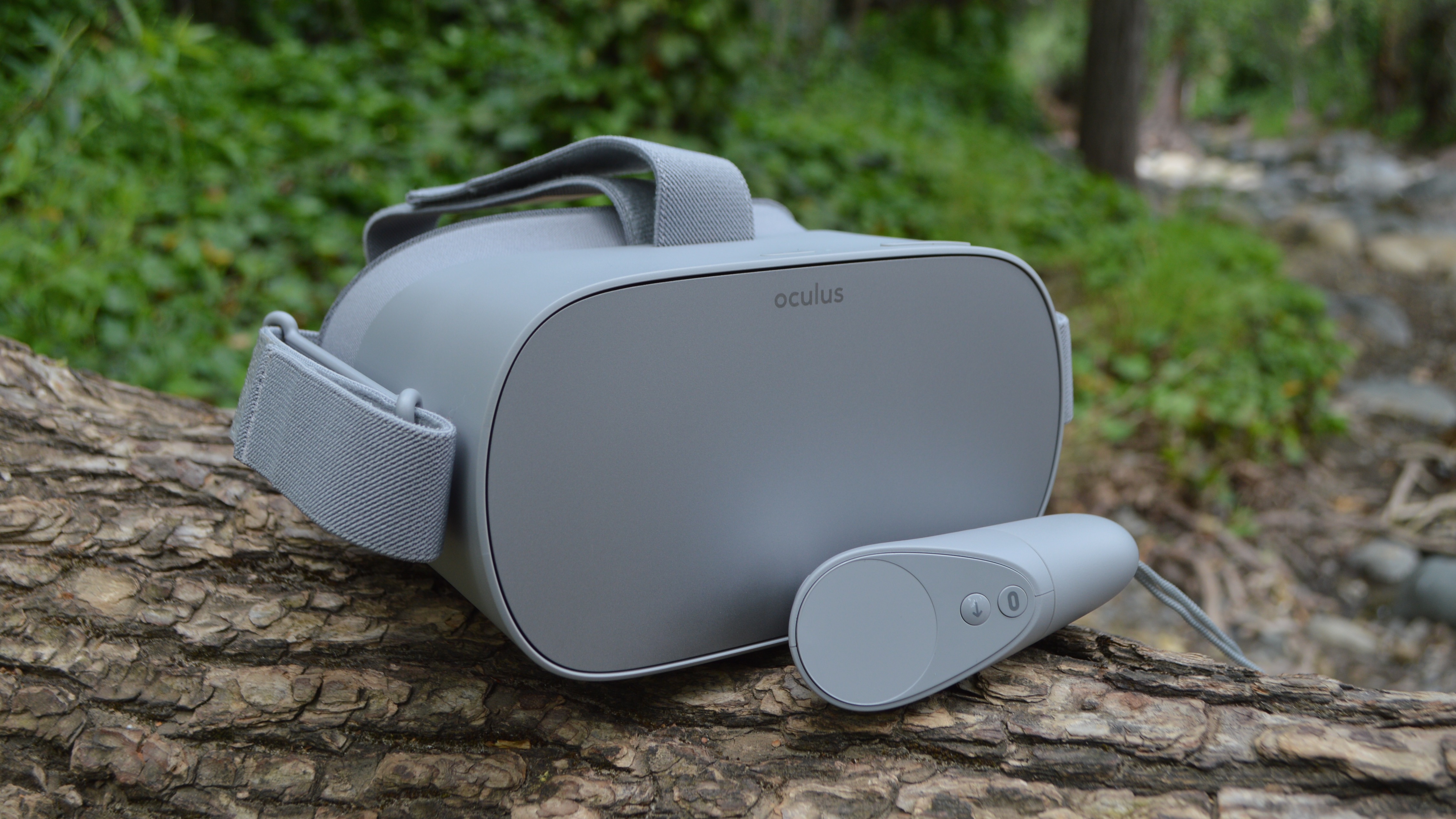
There's little to debate about which VR headset has the more favorable price.
The Oculus Go comes in at a low price of $199 (£199 / AU$299) for a 32GB model and $249 (£249 / AU$369) for a 64GB model.
Sign up for breaking news, reviews, opinion, top tech deals, and more.
The package includes the Oculus Go heaset, a controller with lanyard and battery, a charging cable and charger (in the US), a lens cloth, and a glasses spacer.
The Oculus Rift is substantially higher priced, coming in at $399 (£399 / around AU$640). You get the headset, two sensors, and two Oculus Touch controllers in the box.
The price of each headset is only one side of the story here, however. The Oculus Go is a standalone headset, meaning it doesn't need a computer to function.
While it does pair with a phone via Bluetooth as an interface for handling things like downloads, it handles all the VR content with its internal components.
The Oculus Rift, on the other hand, requires nothing short of a powerhouse computer to function properly.
In other words, the Oculus Go's price tag is effectively the end of hardware expenses, while the Oculus Rift only accounts for about a third of the money a customer will need to spend to dive into VR.
So, the Oculus Go stands out as a substantially more affordable entryway into VR than the Rift.
Specs
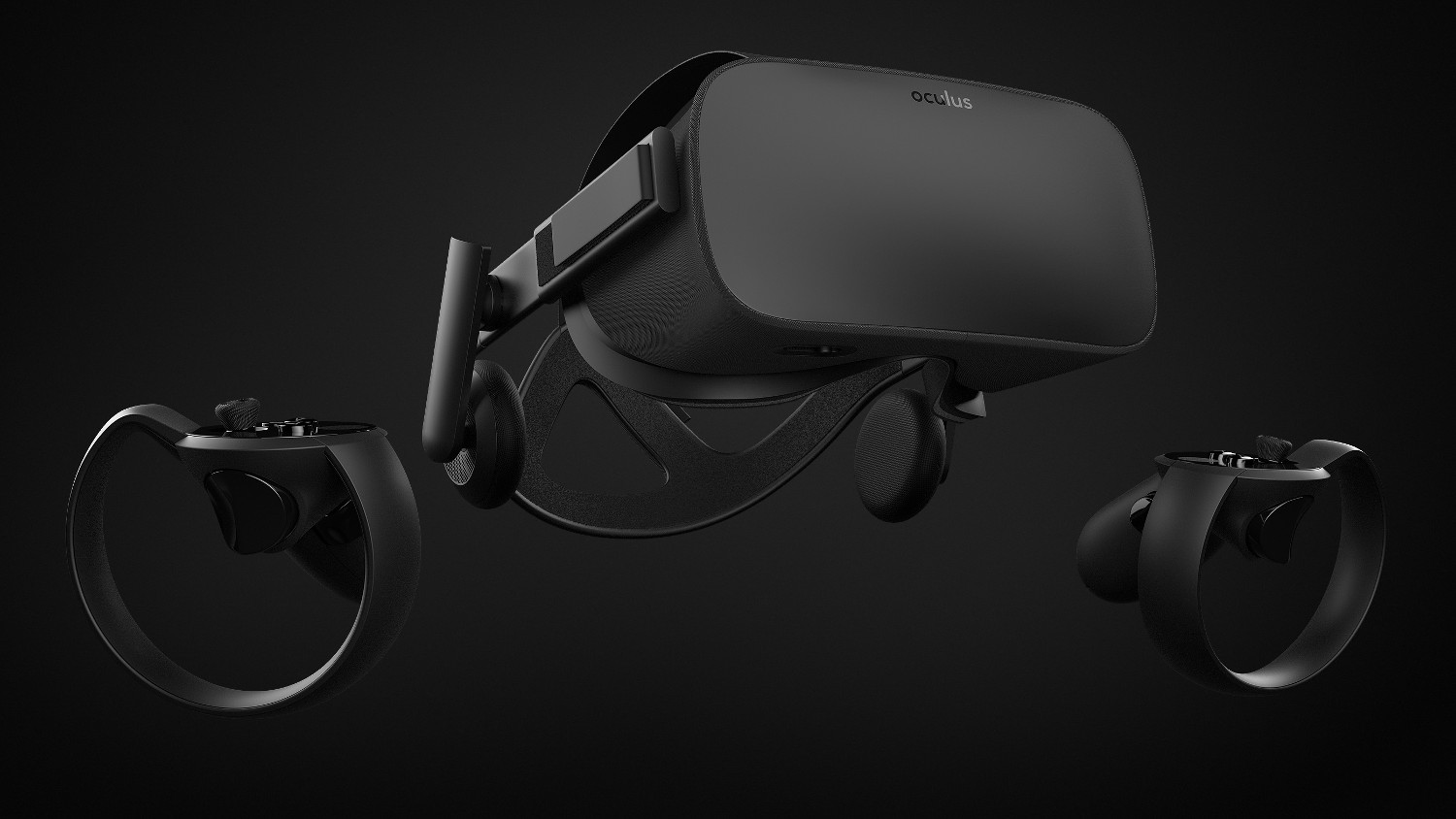
Surprisingly, even at the Oculus Rift's higher price, it doesn't totally smash the Oculus Go in every spec. First, let's take a look at the hardware each is built around.
Central to the experience of VR are the displays used. The Oculus Go has a 2560 x 1440 fast-switch LCD display inside that can run at a refresh rate of 60Hz or 72Hz.
The Oculus Rift uses one 1080 x 1200 OLED display per eye for an effective resolution of 2160 x 1200 at a faster 90Hz. The image clarity of the Oculus Go wins out, but it won't feel as smooth as the Oculus Rift.
Both headsets have a built-in microphone and allow users to wear their own headphones if desired.
The Oculus Go has a built-in 3.5mm jack, while the Oculus Rift allows users to plug headphones into their computer (though this means one extra wire in the mix).
However, the Oculus Rift comes with its own detachable headphones to deliver plenty powerful audio. The Oculus Go has good directional speakers, but they don't provide as robust or private an audio experience.

Where the two headsets differ most is in tracking. The Oculus Rift supports full motion tracking of the headset and Touch controllers. Step forward, step side-to-side, duck, lean, jump, crawl on the floor, and the Rift will track your movements as long as the sensors can see you (this is called "outside-in tracking").
It creates a fully immersive experience, and capacative touch buttons on the Rift's controllers also all for finger gestures in some games.
Meanwhile, the Oculus Go is simpler, only tracking rotational movement of the head ("inside-out tracking").
The Oculus Go's controller also has limited tracking, so it won't create the same level of hand presence offered by the Rift. To the Oculus Go's credit, inside-out tracking allows the Go to be used anywhere, though the battery limits use to just 2-3 hours.
Since the Oculus Rift can be powered by the most insanely beefy PC, and the Oculus Go runs on a Snapdragon 821 chipset, the ability to power high-end VR experiences falls drastically in favor of the Oculus Rift.
More power combined with more advanced tracking gives the Oculus Rift a win here, even if it requires a somewhat bulky tether to a computer and the display falls somewhat short of the newer Oculus Go.
Content

The Oculus Go will be an easy VR starter kit for new customers, as there will be a horde of experiences available at launch.
The Oculus Go will have over 1,000 apps, movies, games, and experiences available right away, and it shares a content library with Samsung's Gear VR.
So, Oculus Go users will be able to play any awesome games or experiences they've heard about from their Samsung Gear VR-using friends. What's more, at launch there will be over 100 brand-new or significantly updated apps just for Oculus Go.
A number of special VR environments are launching for Oculus Go and/or Gear VR as well.
Oculus Venues will be a space for events and concerts available on Go and Gear VR. Oculus Rooms is a private space to hang out with your closest friends' virtual avatars. In this Oculus Go and Gear VR experience, you can watch movies together, go inside 360-degree videos, and generally catch up.
Oculus TV will be a 3D space with a giant screen for viewing viewing media, and it will be exclusive to Go at launch. Finally, Oculus Gallery will be an easy way to see and share your own photos, videos and files across platforms.
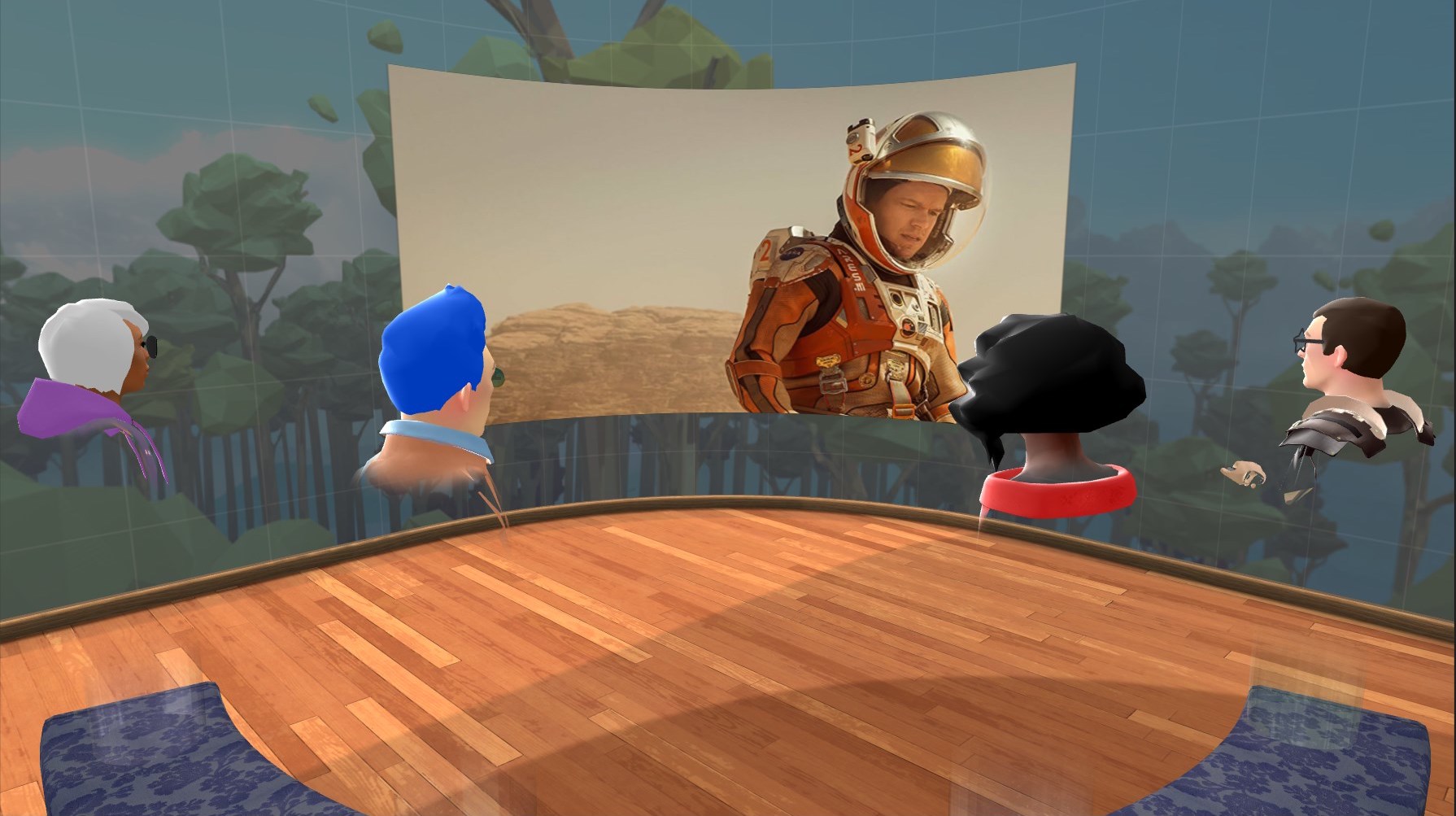
Some of the games coming to the Oculus Go will have cross-platform play with the Gear VR and Oculus Rift, so Go users can game with their friends who have the other headsets.
However, for every game and experience the Oculus Go gets, it's a safe bet that a port or similar title will be available on the Oculus Rift. Many popular Gear VR titles are already on sale for Rift users, but these are often far from the best experiences on offer.
The Oculus Rift has access to a huge assortment of games on Steam and the Oculus Store. With a high-end GPU powering the Rift, these games and experiences can have stunning visuals that don't need to be watered down to run on the kind of hardware inside Oculus GO.
Since many VR experiences are being built around the complete freedom offered by the Oculus Rift and HTC Vive, they don't always work for headsets that only have rotational tracking. As such, they don't often get ported over to the simpler headsets.
You're not likely to be playing Skyrim VR, Robo Recall, or very many of the best Oculus Rift games on an Oculus Go, even if it does have plenty of other fun titles.
Meanwhile, the graphically intensive, wildly immersive experiences available on the Oculus Rift will make the Oculus Go's offerings seem fairly unattractive to VR fans.
Which Oculus headset is right for you?
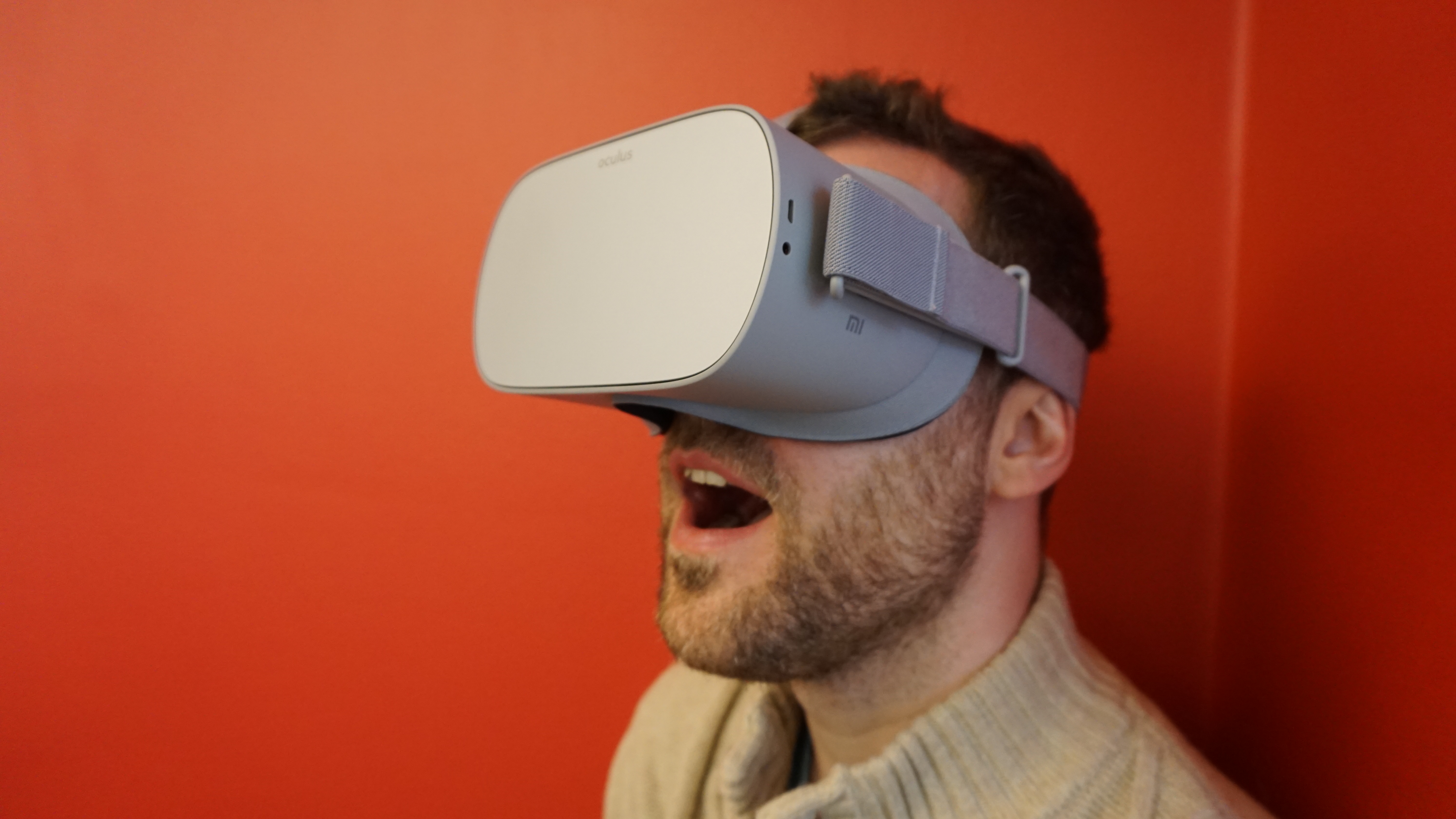
Between the two headsets, the Oculus Rift stands out as the ultimate VR experience.
The screen resolution may fall a tad short of the Oculus Go, but the superior tracking and wealth of games scores it the highest points in one of the factors most important to VR: immersion.
For anyone that has the money and wants the most impressive VR experience, the Oculus Rift is the clear choice between the two.
Where budget doesn't allow and freedom is essential, the Oculus Go still has plenty to offer. Setup is much easier, and introducing friends and family to VR is far simpler with the Oculus Go than the Rift.
Rift users will have to move their entire VR rig and sensors or drag people back to where the Rift is set up in order to get others gaming. Oculus Go users can simply take their headset with them wherever they like.
If you're on the fence about VR and don't have a beefy computer, the Oculus Go is an easy entry point. And, even though the Oculus Rift is better in a lot of ways, anyone who wants a high-end experience may want to wait and see if we get more news about a Oculus Rift 2 or the commercial release of Project Santa Cruz.
- Battle of the high-end headsets: HTC Vive vs Oculus Rift

Over the last several years, Mark has been tasked as a writer, an editor, and a manager, interacting with published content from all angles. He is intimately familiar with the editorial process from the inception of an article idea, through the iterative process, past publishing, and down the road into performance analysis.